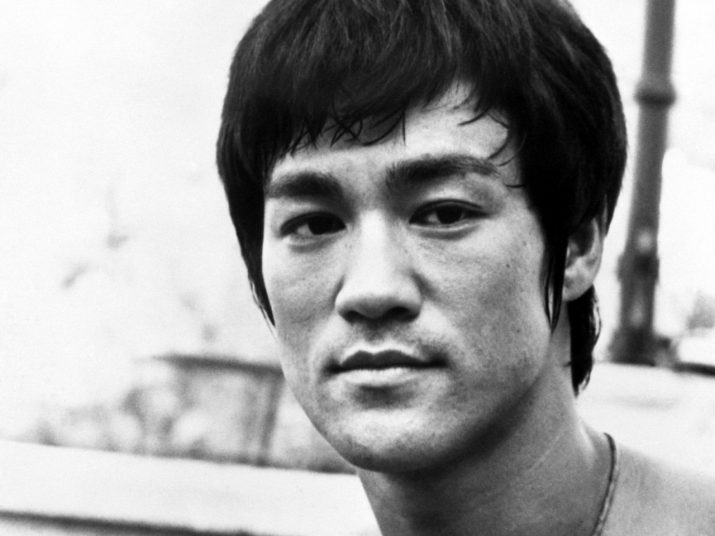The Bruce Lee Approach to Valuing Money
By StevenAitchison
April 7, 2011 • Fact checked by Dumb Little Man

Bruce Lee lived his life through action; he was a man who lived what he taught. Many people don’t know that he wasn’t just a great martial artist but he studied, amongst other things, philosophy at the University of Washington. He was deeply interested in life and and all that encompasses, including money.
From the book, ‘Striking Thoughts‘ Bruce Lee talks about money as a useful tool, nothing more. Here are some of the lessons:
- The Nature Of Money
“Money of itself has no explicit nature. Money is what one makes of it”
Many of us believe that money holds a certain power. This is wrong. Money itself does not hold the power, rather it’s our perception of money that has the power. If we change our perception about money, and understand that it is a tool used to acquire necessities, it no longer has the same power. In fact, I’d contend that we can start living life with a more balanced view once we understand what money really is.
This lesson is not usually gained until we are older and unfortunately, in youth, we have a very different view of material items and do whatever we can to accumulate items for the wrong reasons.
- Money Is A Means To An End
“A Child must be taught early that money is only a means, a type of usefulness, an implement. Like all instruments, it has certain purposes, but it will not do everything. One must learn how to use it, what it will do, but above all what it will not do.”
We’ve all heard the saying money can’t buy you love. In fact, it can’t buy you a lot of things in life. While the commercialization of the planet advertises that new cars, purses, and homes can create happiness, I think most of us know better.
Once you understand that money cannot purchase the emotions, relationships, or feelings that truly lead to happiness, money (and material possessions) will become much less important to you.
- Money Is An Indirect Matter
“My policy is that money is an indirect matter. The direct matter is your ability or what you are going to do that counts. If that comes, the indirect things will follow.”
If you do something just for the money, the love of it will soon die. If you do something you love, then the money is secondary but it will come a lot easier and it will last longer. This is something I have learned in business: when I chase the money it runs faster than me, when I let the money chase me by doing something I love, like writing, the race is a foregone conclusion.
- A Fair Share Of The Profit
“Many film producers think I am only interested in money. That’s why they all try to lure me on their set by promising me huge sums and nothing else. But, at heart, I only want a fair share of the profit.”
This is a great lesson by Lee. By looking at what is fair for all parties involved you will be known as a fair and trustworthy person. If you take bigger slices of the profit, the profits will soon dry up. Think of it like this: If you are asking for a ton, those that you are working with may feel unmotivated and ultimately the success of the project suffers. If you are fair, and everyone is fair, the group works as one and accomplishes great things.
- The Good Times Will Not Always Last
“I profited from my father’s philosophy about money. He used to tell me, “If you make 10 dollars this year, always think to yourself that next year you may only make five dollars – so be prepared.”
We all know this at heart and yet so many of us fail to practice saving for harder times. Many economic gurus these days like telling us to save more. Great, but if the mortgage can’t be paid, how am I able to save? The key is to do something and set something aside – albeit only a few bucks.
- Keep Money In Perspective
“Sure money is important in providing for my family and giving us what want. But it isn’t everything.”
Money is important, there is no questioning that, but answer this question:
“Would you swap your family for 1 million dollars?”
Ok, I know how most of you answered. The important test here is that you should always weigh the important of money against your actions, decisions, and behaviors. What are you willing to give up during your quest for cash? Your integrity, your family (by never being around)? Give it some thought.
- Enjoying Your Work Is The Important Thing
“At [one] time I wanted all the indirect things – money, fame, the big opening nights. Now I have it, or am beginning to get it, the whole thing doesn’t seem important anymore. I have found that doing a thing is more important. I am having fun doing it. Money comes second.”
This is one of the most important lessons about money that I think Lee spoke about, and it’s certainly true in my life. I have discovered over the years that the prize at the end of the rainbow is not really the prize, the prize was the Journey to the end of the rainbow.
 |
Written by Steven Aitchison. Steven is the Author of Change Your Thoughts and works as an alcohol and drugs counselor. He has a BSc in Psychology and has a passion for studying belief formation, thought processes and values and principles. | Photo Credit: juanma |







